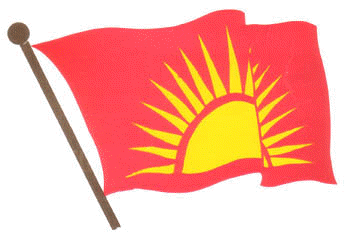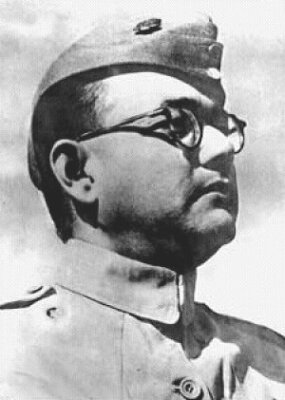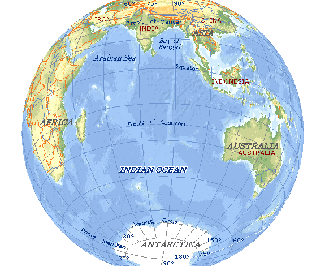 Kosovo
is set to declare its independence from Serbia this Sunday. In his four hour
long valedictory media conference, outgoing Russian President Vladimir Putin has
denounced the move as "illegal and immoral". Serbia and Russia have called for
an emergency meeting of the UN Security Council. Russia, China, India and South
Africa are among the countries which have opposed Kosovo's declaration of
independence. The open secession of Kosovo and its imminent recognition by
powerful Western states takes place notwithstanding UN Resolution 1244 of 1999
which recognises Kosovo as part of Serbia. As the Russian Federation's
charismatic Foreign Minister Sergei Lavrov (who stunned me by a burst of fluent
Sinhala upon introduction) warned in his Gunnar Myrdal Lecture in Geneva a few
days back, the recognition of Kosovo's independence runs contrary to the very
basis of international law and is fraught with consequences for Europe and other
parts of the world.
Kosovo
is set to declare its independence from Serbia this Sunday. In his four hour
long valedictory media conference, outgoing Russian President Vladimir Putin has
denounced the move as "illegal and immoral". Serbia and Russia have called for
an emergency meeting of the UN Security Council. Russia, China, India and South
Africa are among the countries which have opposed Kosovo's declaration of
independence. The open secession of Kosovo and its imminent recognition by
powerful Western states takes place notwithstanding UN Resolution 1244 of 1999
which recognises Kosovo as part of Serbia. As the Russian Federation's
charismatic Foreign Minister Sergei Lavrov (who stunned me by a burst of fluent
Sinhala upon introduction) warned in his Gunnar Myrdal Lecture in Geneva a few
days back, the recognition of Kosovo's independence runs contrary to the very
basis of international law and is fraught with consequences for Europe and other
parts of the world.
“The Kosovo crisis sheds light on a dynamic in world politics
which is of central importance to Sri Lanka. This is the matter of state
sovereignty. As a country which is grappling with a challenge to its territorial
integrity and unity, all tendencies towards the break-up of established states
are against the basic interests of Sri Lanka.”
The Russian position has consistently been that any solution
should be agreed upon in negotiations between Serbia and Kosovo. This was
abandoned as impossible by Marti Ahtissari, who recommended de facto
independence for Kosovo. Incidentally he was brought to Sri Lanka as a possible
negotiator or facilitator by the Ethnic Affairs Advisor of President
Kumaratunga, but luckily for Sri Lanka was objected to by Lakshman Kadirgamar
and, it must be admitted, the JVP.
There were options other than secession for Kosovo. One was for
the fullest autonomy within Serbia. The other was the carving out of the Serbian
majority portion of Kosovo and its annexation with Serbia. However, all options
were aborted by the obduracy of the Kosovo leadership, which insists on
independence. It must be noted that the current leader of Kosovo is a former
leader of the separatist army which practised terrorism, the Kosovo Liberation
Army (KLA). The majority of people of Kosovo had become accustomed to the idea
of independence during the several years of administration by a UN High
Commissioner (later nominated as an IIGEP member for Sri Lanka by the EU).
The hardening of the position of Kosovo was also due to open
pledges of recognition of independence by several key Western powers.
Of course the breakaway of Kosovo merely completes the
unravelling of the former Yugoslavia. There were many reasons for this: the
abandonment by majority Serbian ultra-nationalists, in the new context of
electoral competition, of the enlightened compact forged by the unorthodox
Communist Joseph Broz Tito, a founder leader of the Non-Aligned Movement (and
friend of Sri Lanka); the exacerbation of ethnic tensions by the adoption of an
IMF package; the rollback by Serb nationalism of Kosovo's autonomous status as a
province; recognition by certain Western European states of the breakaway
Yugoslav republics setting off a centrifugal chain reaction; the excessive
brutality against civilians of the Serbian army and Serb militia in the
breakaway republics; the partiality of the Western media which focussed only on
Serb excesses but not those committed by anti-Serb forces.
In the final instance however, the secession of Kosovo is
traceable to a single mistake: the decision by President Milosevic to follow the
advice of President Yeltsin (who had already been lobbied by the US), and
withdraw the Yugoslav army from Kosovo, notwithstanding the fact that in its
heavily camouflaged and dug-in positions, it had withstood US/NATO bombing and
was well positioned to inflict, with its tradition and training in partisan
warfare, unacceptable casualties on any invading ground forces.
Cuban leader Fidel Castro reveals that at this
crucial moment he had written to Milosevic and urged him, in the
final words of his missive, to "Resist! Resist! Resist!", but
the Belgrade leadership failed to do so. In short, the impending
independence of Kosovo is the result of the failure of political
will on the part of the ex-Yugoslav leadership. Instead of
resisting, the Yugoslav army withdrew and was replaced by an
international presence on the ground in Kosovo. After a period
of tutelage, Kosovo was encouraged with a nod and a wink, to
secede completely.
These then are the lessons for Sri Lanka: never withdraw the
armed forces from any part of our territory in which they are
challenged, and never permit a foreign presence on our soil.
After 450 years of colonial presence, and especially after the
experience of the Kandyan Convention, we Sri Lankan should have
these lessons engraved in our historical memory and our
collective identity. The Western imperialists who failed to
capture our island militarily were able to take control of it
only because we double crossed our leader, trusted the West,
signed an agreement and allowed the foreign presence into our
heartland.
The Western war against Yugoslavia was waged not by the Bush
administration but by a liberal one. It was waged under the
doctrine of liberal internationalism, and humanitarian
interventionism. These doctrines were updated to "preventive
humanitarian interventionism" in the case of the invasion of
Iraq. Today, the buzzword is the "Responsibility to Protect",
and I refer not to the UN World Leaders summit of 2005 which
requires the endorsement of the Security Council, but the
original 1998 version of the Canadian government sponsored
International Commission on State Sovereignty, which had a far
more elastic interpretation! The co-chairman of that Commission
was former Australian Foreign Minister Gareth Evans (whom
Lakshman Kadirgamar was determined, should not play a role in
Lanka's peace process despite his offers to do so in 1995).
We may find a newer version arising with UK Foreign Secretary
David Miliband's Aung San Suu Kyi lecture delivered at Oxford
University a few days back. In it, he says that notwithstanding
some mistakes in Iraq and Afghanistan, the West must not forget,
and must take up once again, its moral imperative to expand
democracy throughout the world (including, interestingly enough
in "established democracies").
He identifies and rejects three objections to
that project: the "Asian values" school which in its 1993
variant of a statement by 34 countries, recognises democracy but
resist the imposition of western values as neo-colonial; the
Realpolitik school which stresses "interests" rather than values
and morality; and even the pragmatic school which points out
that democracy is the product of internal historical processes.
Foreign Secretary Miliband makes several pointedly critical
references to China, (which he will be visiting shortly) in his
speech on the need of the West to extend democracy worldwide.
The patterns of world politics appear kaleidoscopic, with
coalitions forming over one issue, only to break up over
another. At first glance this would make long term alliances or
affiliations almost impossible. However, certain issues are
revelatory of underlying dynamics which are of a defining
character. Kosovo is certainly one such issue.
The Kosovo crisis sheds light on a dynamic in world politics
which is of central importance to Sri Lanka. This is the matter
of state sovereignty. As a country which is grappling with a
challenge to its territorial integrity and unity, all tendencies
towards the break-up of established states are against the basic
interests of Sri Lanka.
The issue of Kosovo not only illustrates the phenomenon of
secessionism. It reveals a more fundamental contradiction within
world politics, namely that between state sovereignty on the one
hand and those tendencies which act to undermine states. Such
tendencies are twofold: secessionism from within and hegemonism
from without. The tendency towards hegemonism manifests itself
most starkly in the phenomenon of interventionism.
Kosovo and earlier Chechnya disprove the identification that
some make between Western interventionism and particular
religions. While it is true that on a global scale, the West
perceives itself as besieged by and struggling against what it
calls Islamist terrorism or Islamic radicalism/extremism (some
hard-line ideologues even talk of Islamo-fascism) attention must
be drawn to the fact that Serbs are Christian, while Kosovo
Albanians are Islamic. The Chechen separatists, some of whom
were headquartered in the West, were also Islamic, while Russia
is mainly Christian. Western interventionism is not tied to any
particular ethnic or religious group. The name of the game seems
the old one of divide and rule, and whichever group or struggle
weakens the target state appears to be the one that is afforded
patronage.
All tendencies in world politics which weaken, fragment and
destabilise states, undermining their sovereignty and making
them vulnerable to hegemony and intervention, are inimical to
Sri Lanka. All tendencies which strengthen and defend state
sovereignty, unity and territorial integrity, are friendly and
helpful towards Sri Lanka. By extension, all state and non-state
actors which work towards the weakening of state sovereignty in
the non metropolitan areas of the world, i.e. the global South
and East, cannot be regarded as the strategic friends, allies
and partners of Sri Lanka. All state and non–state actors which
support, defend and work towards the preservation and
strengthening of the sovereignty, independence, unity and
territorial integrity of states, are objectively the friends,
allies and partners of Sri Lanka.


 "No real change in history has ever been achieved by discussions
alone... Freedom is not given, it is taken.. One individual may die
for an idea; but that idea will, after his death, incarnate itself in a
thousand lives. That is how the wheel of evolution moves on...The
freedom that we shall win through our sacrifice and exertions, we
shall be able to preserve with our own strength..
"No real change in history has ever been achieved by discussions
alone... Freedom is not given, it is taken.. One individual may die
for an idea; but that idea will, after his death, incarnate itself in a
thousand lives. That is how the wheel of evolution moves on...The
freedom that we shall win through our sacrifice and exertions, we
shall be able to preserve with our own strength..
